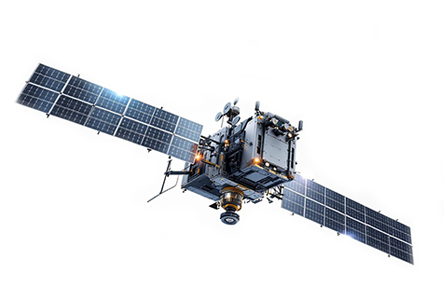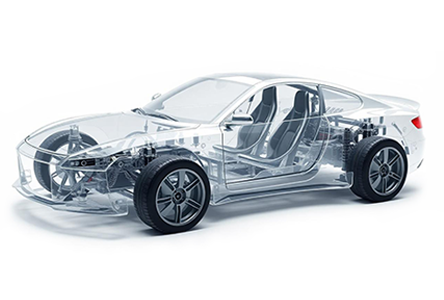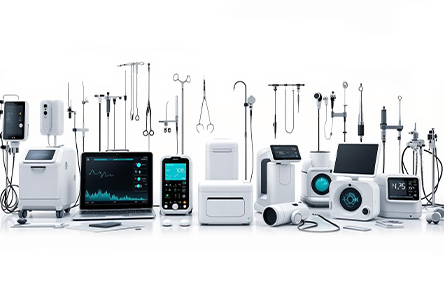About Injection Molding
Injection molding is a high-efficiency manufacturing process that produces identical plastic parts at scale. It works by heating thermoplastic pellets until molten (typically 200-300°C), then injecting the material under high pressure (500-2000 bar) into a precision-machined steel or aluminum mold cavity. The plastic cools and solidifies in seconds (cycle times range from 10-120 seconds), taking the shape of the mold. Once ejected, the part is complete and requires minimal finishing.
This process excels at creating complex geometries with features like thin walls (as low as 0.3mm), living hinges, textured surfaces and integrated fasteners. Key technical advantages include:
Common applications span medical devices, automotive components, consumer electronics and packaging, virtually any plastic item used daily likely involved injection molding.
Injection Molding Services
Prototype Injection Molding
Online QuoteFunctional Prototypes in 7 Days - No Compromises. Beat Competitor Timelines by 30%.
Blazing-Fast T1 Samples: 7-10 days with aluminum molds
Zero-Tooling Requotes: Fixed pricing and partner from day one
Engineer-Led DFM: Feedback in 3 hours including mold flow simulation
Complexity-Ready: Overmolding, inserts and ±0.100 mm tolerances validated pre-production.
Production Injection Molding
Online QuoteScale to 1M+ Units Seamlessly - Zero Quality Variance. Your Tool, Perfected.
Steel Molds Built for Volume: 1M+ cycle tooling with lifetime maintenance
Scientific Process Control: AI-monitored CpK >1.67 ensures <0.1% defects
No MOQs: Order 100 or 100k+ units with same pricing transparency.
Supply Chain Integrity: Full traceability (ISO 13485/9001) and real-production tracking.
Injection Molding Capabilities
| Category | Details |
|---|---|
| Prototype Tooling |
T1 Samples: 7-10 days Mold Material: Aluminum (1-5k cycles) Max Part Size: 600 × 600 × 300 mm Tolerances: ±0.100 mm |
| Production Tooling |
Mold Life: H13 Steel (1M+), P20 Steel (100k+) Lead Time: T1 - 15 days, Production - 3-5 days Cavities: Up to 128 |
| Part Specifications |
Max Size: 600 × 600 × 300 mm Min Wall: 0.3 mm Tolerances: ±0.025 mm (standard), ±0.025 mm (micro) |
| Materials |
500+ Resins: - Commodity: ABS, PP - Engineering: PC, PEEK - FDA/Medical: PPSU, LSR - Bio-polymers: rPET, PLA, PA11 |
| Surface Finishes | SPI A1 to D3, VDI 3400, Painting, Plating, IMD/IML, Laser Etching |
| Tolerances |
Standard: ±0.025 mm Micro-Molding: ±0.025 mm Insert Alignment: ±0.025 mm |
| Advanced Processes |
Overmolding/Insert Molding Gas-Assist Molding (15% weight reduction) Two-Shot Molding Micro-Molding (0.1 g parts) |
| Quality & Compliance |
QA: CpK >1.67 (<0.1% defects) Certifications: ISO 9001/13485, IATF 16949 partners Reports: FAI, CMM, Lot Traceability, Material Certs |
| Design Support |
DFM Feedback in 3 hours Mold Flow Simulation included Tooling Adjustments: Free during prototyping |
| Volume Flexibility |
Prototyping: 1-500 units Bridge: 500-10k units Mass Production: 10k-1M+ units MOQs: None |
| Mold Management |
Free storage: 24 months Maintenance: Lifetime support Reorders: 48-hour activation |
Our Injection Molding Process
Requirement Review & Project Lock
Your Dedicated Partnership Begins
Within 1 business hour of upload, a single ISO-certified manufacturing engineer is assigned to your project.
They conduct a deep-dive assessment of:
• Material compatibility & regulatory needs (FDA, UL94, etc.)
• Cost/time optimization (aluminum vs. steel tooling tradeoffs)
• Fixed pricing and timeline commitment (zero post-quote surprises)
Outcome: A project plan with locked costs, timelines and accountability.
DFM & Feasibility
Engineer-Led Precision, Not Automation Guesswork
While others rely on slow manual reviews or generic algorithms, our hybrid approach delivers:
• Draft/wall thickness feedback via AI-powered simulation within 3 hours
• Mold flow analysis predicting sink marks, weld lines and air traps
• Tolerance validation down to ±0.025 mm for critical features
Outcome: Design perfection before tooling begins. Unlimited revisions included.
Mold Design & Manufacturing
Scientific Tooling Built for Speed & Longevity
Your dedicated partner engineers molds using:
• Scientific Molding principles (cavity sensors, viscosity control)
• Real-time dashboard updates showing mold progress 24/7
• Steel (1M+ cycles) or aluminum (7-day T1) tooling with lifetime maintenance
Outcome: Production-ready molds in 7 days (alum) or 15 days (steel).
T1 Sample Approval
First-Article Integrity, Not Just Speed
Within 7-10 days, you receive:
• Fully inspected T1 samples with 3D scan reports vs. CAD
• First-Article Inspection (FAI) documentation including material certs
• 48-hour revision SLA for adjustments (no requotes or fees)
Outcome: Approved parts ready for volume scaling in days, not weeks.
Production & Delivery
Seamless Scaling, Zero Variance
• AI-monitored production ensuring CpK >1.67 (defects <0.1%)
• Real-time order tracking via dashboard + quality documentation per shipment
• 48-hour reorders from free stored tooling (24-month minimum)
Outcome: Batch-to-batch consistency from 100 to 100k+ units.
Continuous Support
Lifetime Partnership, Not Transaction
• Free tool storage with maintenance logs accessible via dashboard
• Dedicated engineer for future design iterations or material swaps
• Sustainability reporting: Carbon footprint per 1000 parts
Outcome: Long-term support that scales with your product lifecycle.
Core Injection Molding Processes
Standard Injection Molding
High-volume production (1,000-1M+ units) using hardened steel molds. Optimized for complex geometries with wall thicknesses down to 0.5 mm.
500+ resins including ABS, PC, PP, PEEK and UL94 V-0 flammability grades.
Rapid Prototype Molding
Aluminum molds for 50-5,000 functional prototypes. Ideal for design validation with ±0.100 mm tolerances and 5-7 day T1 samples.
Free mold modifications during validation phase.
Overmolding
Bonding thermoplastic (TPE, TPU) over substrates like metal, PCBs or rigid plastics. Critical for seals, grips and waterproofing.
Adhesion strength tested to ISO 8510-2 standards.
Insert Molding
Encapsulating brass threads, sensors or bushings with positional accuracy to ±0.05 mm.
Applications: Electrical connectors, reinforced knobs, surgical tools.
Two-Shot / Multi-Material Molding
Sequential injection of compatible resins (e.g., rigid PC + flexible TPE) in a single cycle.
Rotary plates or core-back systems for complex bonding.
Gas-Assisted Injection Molding
Nitrogen gas injection to create hollow sections, eliminating sink marks while reducing weight by 15-30%.
Gas channels engineered via Moldflow simulation.
Micro Injection Molding
Parts under 1g with tolerances to ±0.025 mm (e.g., micro-gears, catheter components).
ISO 13485-certified cleanrooms with 100% lot traceability.
Liquid Silicone Rubber (LSR) Molding
High-temp (up to 300°C), biocompatible molding for seals, gaskets and wearables.
USP Class VI and FDA 21 CFR 177.2600 compliance.
Injection Molding Secondary Processes
Painting & Coating
Electrostatic application of UV-cured, epoxy or polyurethane finishes for color matching (Pantone®), texture uniformity and environmental protection.
Benefits:
➤ Enhanced Durability: Salt spray resistance (ASTM B117)
➤ Brand Consistency: Exact Pantone® matching with digital workflows
➤ Cost Savings: In-house coating avoids 3rd-party markups
Laser Engraving & Etching
High-resolution (1200 dpi) permanent markings for logos, serialization or regulatory labels (UL, CE, FDA).
Benefits:
➤ Traceability Compliance: UDI with 0.01 mm precision
➤ Zero Tooling Costs: No physical dies or screens
➤ Tamper-Proof: Irremovable anti-counterfeit markings
Ultrasonic Welding
High-frequency vibration bonding for hermetic seals in medical and electronic enclosures.
Benefits:
➤ Leak-Proof: Validated to IP67 (ISO 20653)
➤ Material-Safe: No adhesives or thermal damage
➤ Speed: 30% faster than manual assembly
EMI/RFI Shielding
Conductive nickel/copper coatings or films to block electromagnetic interference.
Benefits:
➤ Signal Protection: 60 dB attenuation (FCC Part 15)
➤ Weight Savings: Replace bulky metal shields
➤ Integrated Testing: Live resistance validation
Heat Staking & Insertion
Thermal embedding of metal threads, bushings or sensors into molded parts.
Benefits:
➤ Warpage Prevention: Robotic 99.9% alignment
➤ Structural Strength: Higher pull-out resistance
➤ Clean Process: No lubricants or debris
Texture
SPI/VDI mold texturing (pre-process) or EDM/Laser etching (post-process).
Benefits:
➤ Design Flexibility: Preview textures on 3D models
➤ Ergonomics: Non-slip grip without adhesives
➤ Aesthetic Freedom: Matte, leather or custom textures
Precision Machining (Post-Mold)
CNC drilling, milling or tapping for features not possible in molding due to draft constraints.
Benefits:
➤ Tolerance Hold: ±0.025 mm for precision features
➤ Cost Efficiency: Avoid complex mold actions
➤ Unified Workflow: Molding + machining under one roof
Assembly & Kitting
Electro-mechanical assembly, functional testing and packaging.
Benefits:
➤ Turnkey Delivery: Barcode-tracked kits ready for shipping
➤ Risk Reduction: One partner for full product quality
➤ Speed-to-Market: Cut 4-6 weeks of logistics overhead
PMMA |
Transparent shatter-proof thermoplastic as alternative to glass in applications. |
||||||||||
Key Features
|
|||||||||||
ABS (Acrylonitrile butadiene styrene) |
Impact-resistant thermoplastic used in manufacturing durable products. | ||||||||||
Key Features
|
|||||||||||
PVC (Polyvinyl Chloride) |
Durable and widely used in construction, plumbing and electrical applications. |
||||||||||
Key Features
|
|||||||||||
HDPE (High-density polyethylene) |
Versatile thermoplastic widely used in packaging applications. |
||||||||||
Key Features
|
|||||||||||
PC (Polycarbonate) |
Tough and transparent thermoplastic with impact resistance, optical clarity. |
||||||||||
Key Features
|
|||||||||||
POM (Polyoxymethylene / Acetal) |
Suitable for industrial applications due to high tensile strength. |
||||||||||
Key Features
|
|||||||||||
PEEK (Polyether ether ketone) |
High performance thermoplastic for engineering applications. |
||||||||||
Key Features
|
|||||||||||
PBT (Polybutylene terephthalate) |
High strength, rigidity, thermal resistance, dimensional stability. |
||||||||||
Key Features
|
|||||||||||
HIPS (High Impact Polystyrene) |
Low cost, tough plastic that is easy to thermoform and fabricate. |
||||||||||
Key Features
|
|||||||||||
PPS (Polyphenylene Sulfide) |
Ability to replace metal and other plastic in demanding applications |
||||||||||
Key Features
|
|||||||||||
PP (Polypropylene) |
Widely used thermoplastic with high strength and excellent elasticity. |
||||||||||
Key Features
|
|||||||||||
PA (Polyamide / Nylon) |
Wear resistance and toughness along with a low coefficient of friction. |
||||||||||
Key Features
|
|||||||||||
LDPE (Low-Density Polyethylene) |
Commonly used high clarity and chemically inert polymer. |
||||||||||
Key Features
|
|||||||||||
TPU (Thermoplastic Polyurethane) |
Tough and durable, making it suitable for various soft and semi-rigid applications. |
||||||||||
Key Features
|
|||||||||||
TPE (Thermoplastic Elastomer) |
Thermoplastic material which is a combination of plastic and rubber |
||||||||||
Key Features
|
|||||||||||
A-1 to A-3 |
Mirror finishes achieved through diamond polishing. Surface roughness (Ra) 0.012 - 0.100 μm Applications High polish parts |
B-1 to B-3 |
Semi-gloss finishes achieved through grit sanding. Surface roughness (Ra) 0.05 - 0.32 μm Applications Medium polish parts |
C-1 to C-3 |
Matte finishes achieved through stone polishing. Surface roughness (Ra) 0.35 - 0.70 μm Applications Low polish parts |
D-1 to D-3 |
Textured finishes achieved through various texturing techniques. Surface roughness (Ra) 0.8 - 18.00 μm Applications Dull finish parts |
VDI 12-15 |
Smooth finishes, typically used for optical parts. Surface roughness (Ra) 0.40 - 0.56 μm Applications Low polish parts |
VDI 18-30 |
Medium roughness, suitable for most consumer products. Surface roughness (Ra) 0.8 - 3.15 μm Applications Dull finish parts |
VDI 33-45 |
Rough finishes, often used for industrial parts where appearance is less critical. Surface roughness (Ra) 4.5 - 18.0 μm Applications Dull finish parts |
Why Choose Clarwe for Injection Molding Services?
When every second and every micron counts, partner with a platform engineered for reliability. Unlike marketplace models that force you into bidding wars or rotate suppliers-risking consistency across batches-we pair your projects with dedicated ISO 9001-certified manufacturers from our vetted global network. This means no quality lottery: your T1 samples ship in 7 days (30% faster than industry averages) with tolerances held to ±0.025 mm, backed by AI-driven process monitoring that ensures <0.1% defect rates across production runs. While other competitors bury fees in requotes or struggles with partner coordination, we offer fixed pricing, a single accountable team per project and lifetime tool maintenance-turning complex workflows into one seamless handoff.
Experience manufacturing simplicity redefined. Our intuitive dashboard puts you in control: upload designs for quick quotes, track mold progress in real time and reorder in 48 hours-all without navigating clunky portals or communication gaps. Combined with free material certifications, mold flow simulations and a 100% quality guarantee (including full FAI reports and lot traceability), we eliminate the surprises that plague traditional vendors. For engineers who value precision without the headaches, we deliver certified excellence: ISO-backed, platform-powered and relentlessly accountable.
Clarwe's Platform Advantage
Our integrated dashboard delivers end-to-end project command-streamlining workflows while ensuring transparency at every stage. Experience seamless coordination from initial request to final delivery, all within a single secure interface.
Submit & Configure
| RFQ Initiation |
Upload CAD files (STEP, IGES, SLDPRT) and drawings Specify requirements: materials, tolerances, finishes, inspection protocols Request custom documentation: material certs, CMM reports, customs forms |
| Real-Time Quoting |
Receive online DFM analysis with cost drivers flagged Adjust configurations (e.g., material substitutions) to optimize pricing |
Order Execution & Oversight
| Document Management |
Submit customs declarations, commercial invoices and HS codes Upload purchase orders or approve terms for payment Access digital invoices with tax/line-item breakdowns |
| Production Intelligence |
Track progress and updates View Shop floor photos/videos Access Inspection reports, quality documents and Material certifications Monitor shipping status with carrier integrations |
Proactive Collaboration & Support
| Engineer Engagement |
Send technical queries and status enquiries to our engineers via encrypted chat Receive resolution timelines for technical queries |
| Quality Assurance Hub |
Access pre-shipment documentation: First-article inspection reports, dimensional reports and quality
documents Approve/reject deliverables via annotated media |
| Post-Delivery Excellence |
Initiate reorders with one-click cloning Log support tickets for non-conformances Archive project history (drawings, certs, comms) for audits |
Injection Molding Applications
Automotive & Transportation
- Interior: Dashboard panels, HVAC vent assemblies, snap-fit trim clips
- Exterior: Bumpers, LED headlight housings, fuel-resistant filler necks
- Under-Hood: Engine sensor housings, electrical connectors
Materials: Glass-filled PP, PPS (heat-resistant), TPE (seals).
Consumer Electronics
- Housings: Smartphone cases with textured grips, router enclosures (UL94 V-0 rated)
- Internal Components: SIM trays, heat-resistant socket mounts
- Connectors: USB-C ports with overmolded copper
inserts
Materials: PC/ABS (impact-resistant), LCP (high-temperature), static-dissipative nylons.
Aerospace & Defense
- Cockpit Controls: Flame-retardant switch panels, joystick grips
- Structural: Drone rotor mounts, missile guidance housings
- PPE: Ballistic helmet shells, radio casings
(MIL-SPEC)
Materials: PEEK, PEI (Ultem), carbon-PA (for weight-critical parts).
Medical & Healthcare
- Diagnostics: Test swabs, Petri dishes, microfluidic chips
- Surgical Tools: Sterilizable scalpel handles, endoscopic components
- Implants: PEEK spinal cages, dental drill sleeves with ±0.005 mm tolerances
Materials: Medical-grade PEEK, silicone, PC/ABS blends (ISO 13485/FDA-compliant).
Industrial & Construction
- Piping: Solvent-weld PVC fittings, geothermal pipe connectors
- Tools: Power drill housings, ergonomic shovel handles
- Building Systems: Window roller gears, electrical conduit boxes
Materials: UV-stabilized ABS, PVC, polycarbonate (for glazing).
Packaging & Food Safety
- Containers: Tamper-evident prescription bottles, PCR plastic food tubs
- Closures: Child-safe caps, spray pump assemblies
- Utensils: BPA-free cutlery, measuring cups with molded graduations
Materials: rPET, PP, HDPE (FDA-compliant).
Energy & Sustainability
- Renewables: Solar panel mounting clips, wind turbine blade seals
- Batteries: EV battery cooling plates, junction boxes (UL94 HB)
- Hydrogen Systems: Fuel cell bipolar plates, electrolyzer components
Materials: Conductive PPS, PEEK (for high-pressure H₂ environments).
Industries specialized

Aerospace

Automotive

Consumer Products

Medical
Ready to get started?
Frequently Asked Questions about Injection Molding
T1 samples in 7 days with aluminum tooling - 30% faster than industry averages. Includes full inspection reports.
Yes, engineer-led DFM analysis with mold flow simulation in <3 hours (vs. 24+ hours elsewhere). Unlimited revisions included.
You retain 100% ownership. We store tools free for 24 months with lifetime maintenance and no "re-activation fees".
AI-driven scientific molding (CpK >1.67) and a single ISO-certified partner per project, eliminating quality variance.
Yes, full material traceability, RoHS, FDA and FAI reports at no extra cost (competitors charge $250+/report).
±0.025 mm standard | ±0.005 mm micro-molding - 4x tighter than marketplace suppliers.
Never. Fixed pricing locked at project start with no requotes or surprise fees when scaling volumes.
Zero MOQs, produce 1 or 100,000+ units with identical per-part pricing transparency.
Aluminum molds from $1,500 | Steel molds from $5,000 - with 100% cost breakdown upfront.
Yes, robotic insert alignment (99.9% accuracy) and multi-material bonding with validated adhesion reports.
50+ green resins: rPET, bio-PA, recycled ABS with carbon footprint reporting per 1k parts.
Yes, all-in-one finishing: laser etching, EMI shielding, ultrasonic welding. Adds just 0-3 days lead time.
Real-time dashboards show mold progress, QC checks and shipping with no communication gaps.
48-hour revision SLA with no requotes, unlike competitors charging $250+/change.
Yes, ISO 13485/ IATF 16949 partners with full PPAP, IMDS and lot traceability.
